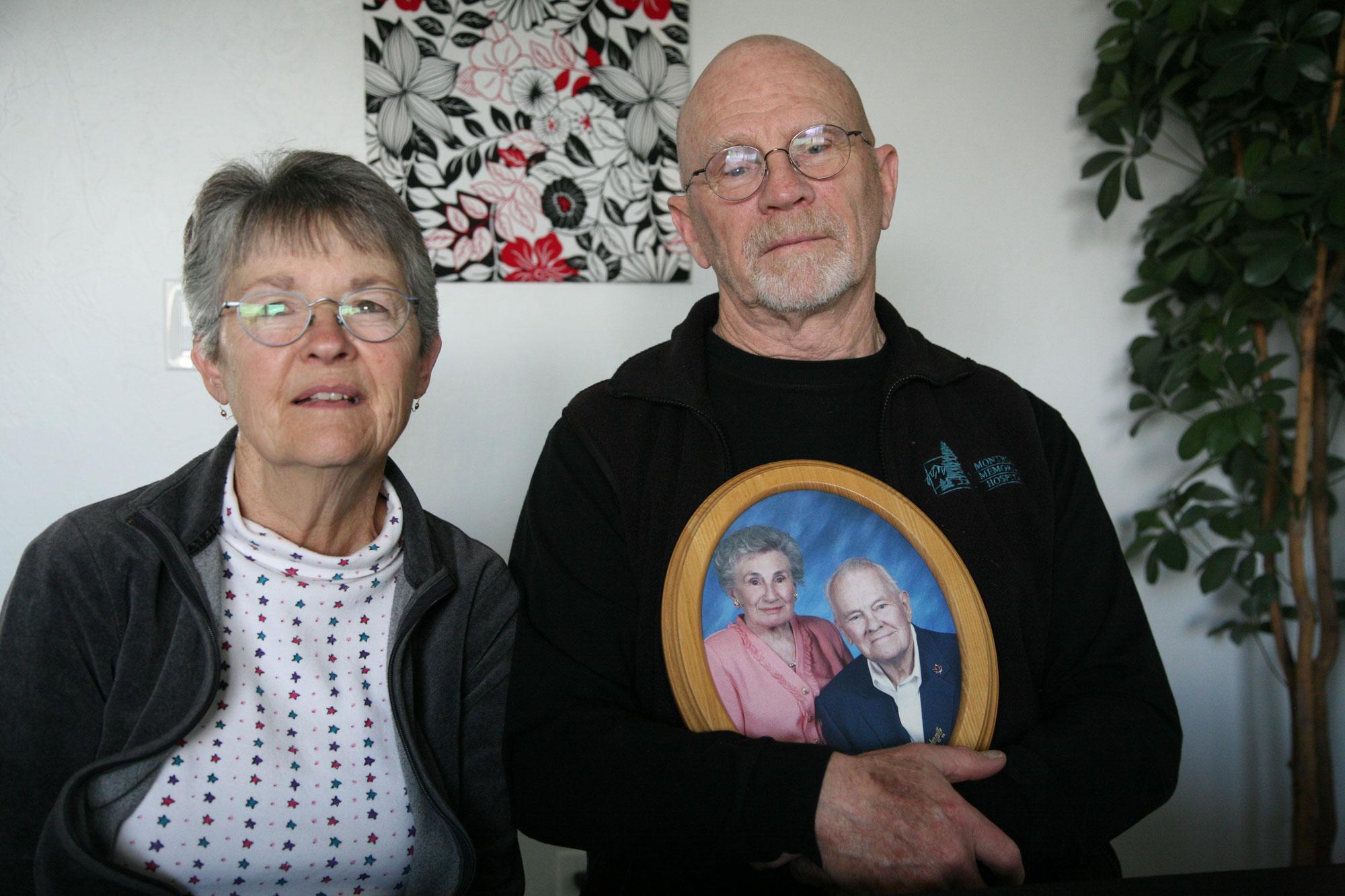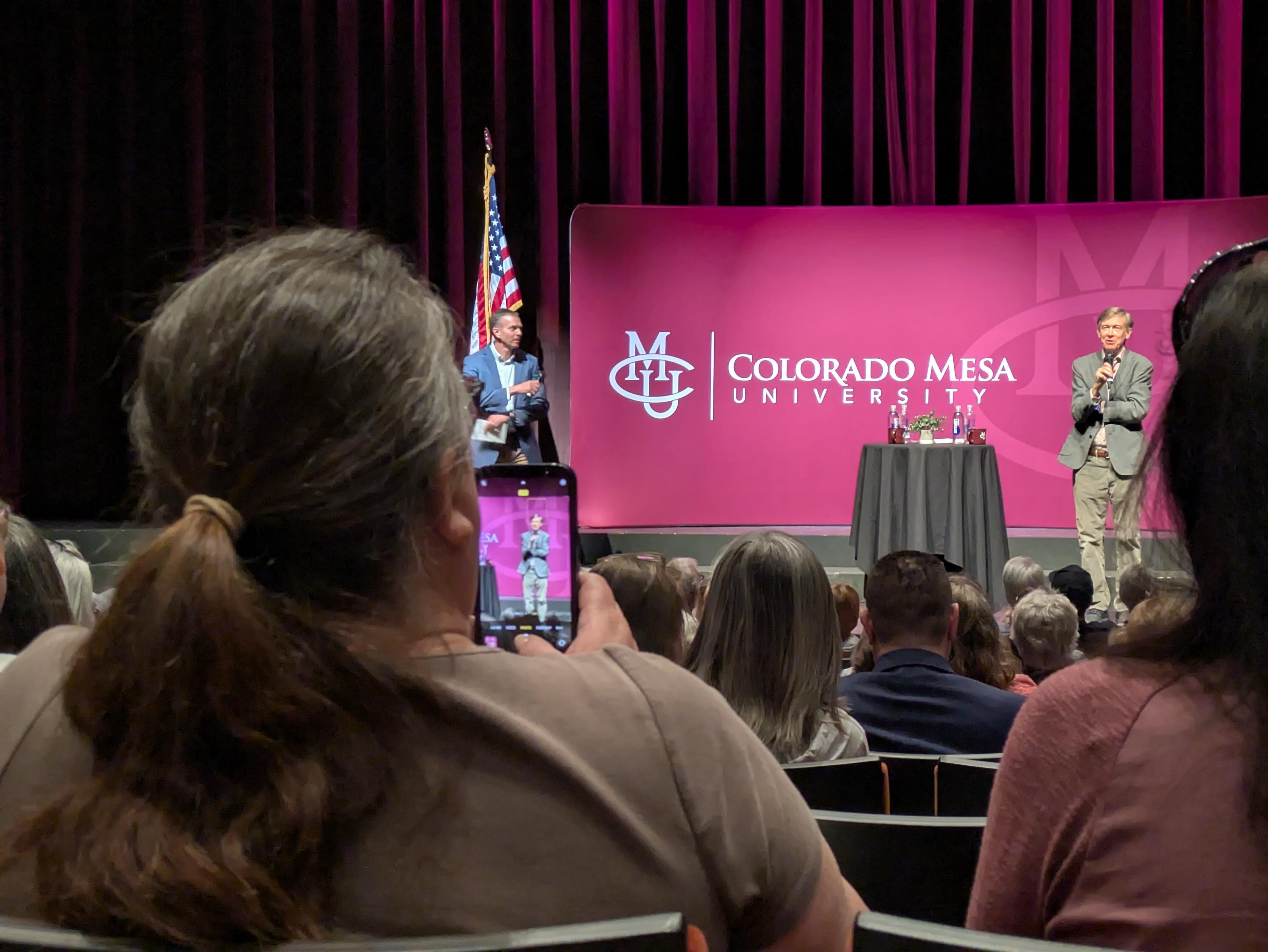

Barb Abbott wishes everyone could have as good a death as her mother-in-law.
From her dining room table in Montrose, she described the 94-year-old’s week in the hospital like an intimate party. It was mostly Abbott, her husband, Ron, and his weakening mother, Shirley.
“We just had the most wonderful time. We really did,” Abbott said. She thought Shirley did too, “because we kept her laughing for as long she was alert.”
Abbott and her husband grieved, but accepted it as the normal course of life. Four years later, in early 2018, rumors circulated through their small, Western Slope city about the funeral home that had handled Shirley’s remains.
Then came the FBI raid.
“It was shocking,” Ron Abbott said. “Absolutely shocking.”
It felt like a new article would appear every day in the Montrose Daily Press, the nearby Grand Junction Daily Sentinel and in The Denver Post, the state’s largest newspaper. Each sounded crazy to him. Megan Hess, the owner of Sunset Mesa Funeral Directors, had operated a body brokering business under the same roof.

That was actually legal at the time, but Hess was accused of not getting consent from families before dismembering their loved ones and selling those body parts around the world. There were also allegations that families received boxes of cat litter and concrete dust in lieu of ashes.
“It was like, ‘Oh my god!’” Ron Abbott exclaimed. “‘That might be my mom, too!’”
An FBI letter confirmed that Shirley’s body might have been caught up in the alleged scheme. Barb Abbott said Hess might have asked them about some kind of donation, but they never would have imagined that would have meant dismemberment.
“How can somebody fool you so much?” she lamented. “It’s just so sad.”
An email to Hess for this story was not immediately returned. She has lost one lawsuit and faces several more. In a motion to dismiss one of the suits, Hess argued there's no credible evidence against her and called the accusations “hysterics and exaggeration.”
Ron Abbott is not part of any of the forthcoming legal cases. He's decided nothing good can come from knowing what really happened to his mother’s body.
“I’ve discussed that with myself quite a few times, and it’s like, maybe it’s just better to leave it the way it is,” he said.
Instead, he’ll focus on the memory of her as she was, a friendly woman who never said a bad word about anyone. Someone who somehow drew people to her in her quiet, warm way. Even their neighbor’s autistic grandson, who has a difficult time connecting with many people, liked Shirley.

That last week of her life, the boy came to visit and laid his stuffed animal on her arm, “just to kind of comfort her before she died,” Abbott said. “That really, that got me. That was a wonderful moment.”
“One of the most wonderful moments of my life, to be honest with you.”
He threw out the FBI letter but faced with the same choice, a friend of theirs felt she couldn’t walk away. Mary Burgner listened to everything that the FBI could tell her when they called about her late husband Jim’s body.
“I just broke down,” she said as she started to cry. “I felt totally betrayed.”
Jim had specifically told her he didn't want his body donated to science. She and his friends had scattered what they thought were his ashes in the mountains that he loved. Yet, there was his name in a book of records belonging to Hess alongside a list of what parts she had allegedly sold: head and neck, two hands and wrists, two feet and ankles.
“I haven’t gotten over it,” Burgner said. “I don’t know if I ever will.”
She feels robbed her of the good memories of Jim’s passing, which happened right before he turned 79. Instead of a traditional wake, she threw a birthday party for her husband of 20 years, the man with a great smile who loved to travel.
Hess and her mother helped decorate and serve food at the event.
“They just came across as people such sweet people,” she said. “It’s no wonder. They were making money hand over foot.”

The money is key. Hess is accused of enticing customers with cheap cremations. Burgner said Hess was $400 less than other funeral homes.
“All this happened because I wanted to save $400. That’s my guilt,"she said.
Burgner feels “violated,” a word that the Abbotts use too.
“You know, you kind of shove it to the back of your head and heart,” Burgner said. “Then you see something in the paper, like this morning, and it all just comes rip-roaring back again.”
That morning, the Montrose Daily Press reported that Hess asked for a lawsuit to be dismissed. Unlike the Abbotts, Burgner has joined a yet to be filed suit. It’s not about money, she said. It’s about accountability.
“I just can’t sit by, can’t let this happen, can’t let it go,” she said. “I owe it to Jim to do something. She [Hess] just can't slip through the cracks.”
People in Montrose understand, she said, and while her friends and neighbors would never bring up Sunset Mesa to her, they’re always ready to talk about it when she needs to.
“You can see how mad everybody is, and nobody wants to let it go,” Burgner said. “It’s really hard in a small community like this.” She feels just as lucky to be going through this in such “a small community.”
Here, she doesn't feel alone.









